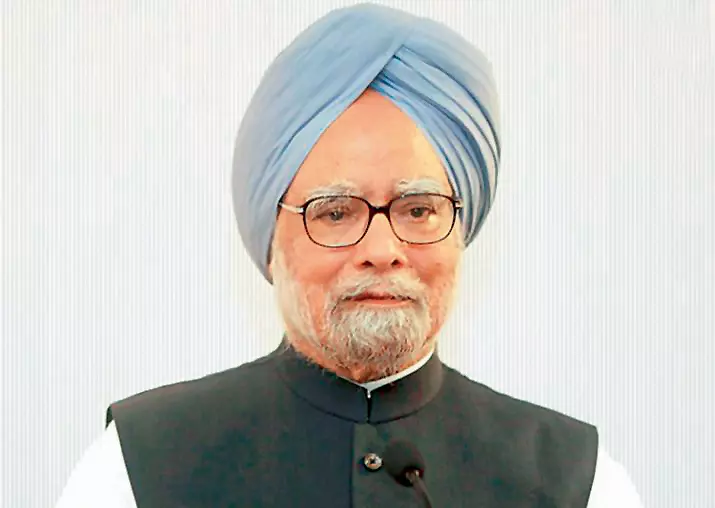
I first met Dr Manmohan Singh when he was finance minister and he came to Tokyo in 1991. The Indian economy was in crisis and Japan had helped us. Even in trouble, and with a weak hand, I was impressed by the calm and self-respecting way in which the minister made his points and achieved results. My role was peripheral and limited to being a message carrier. The Taiwanese had sensed opportunity in our crisis and were offering financial help in return for political favours.
Dr Manmohan Singh was clear in his response. While economics might be discussed, there could be no political strings attached. This combination of pragmatism with political clarity in the midst of crisis, free of overt moralising, impressed me.
I got to know Dr Manmohan Singh better when we spent 14 hours together talking. He represented India at former Israeli Prime Minister Yitzhak Rabin’s funeral in Israel in 1995. I met him at his aircraft in Amman, Jordan, drove with him to the funeral in Jerusalem, and then saw him back to the airplane. The conversation was an absorbing lesson in policy-making, economics and living history. I shamelessly exploited the opportunity to question a finance minister who had brought revolutionary change to the Indian economy. And he, who must have longed for some peace and quiet after the stresses of New Delhi in perpetual crisis, patiently spoke to me through that special day. It was only later that I realised that in his own quiet way, Dr Manmohan Singh had quizzed me on my beliefs, on Israel and the situation in West Asia, on China and its economy, and a host of other issues central to Indian foreign policy. He had also, in his answers, given me clear directions for our future work in Israel.
In many ways, this was typical of the man. His decency and his professorial persona led him to humour a young opinionated diplomat while he was pushing policy forward. His gentle manner cloaked one of the sharpest brains I have ever met.
Little did I know then that my respect for him would only grow as I worked more closely with him subsequently. While I was in Sri Lanka, China, and Pakistan, Prime Minister Atal Behari Vajpayee encouraged me to brief the then Leader of the Opposition in the Upper house, Dr Manmohan Singh.
As we negotiated a free trade agreement with Sri Lanka, Dr Manmohan Singh, who seemed to know all the economists I was negotiating with, was consistently supportive and made constructive suggestions to overcome hesitations at home. It was the same when it came to politically more difficult issues with China and then Pakistan. Those were the years when China under Jiang Zemin and Pakistan under Gen. Pervez Musharraf saw utility in engagement with India. That collegial style of governance in India, taking the Opposition into confidence on major issues and initiatives, was common to the three Prime Ministers — P.V. Narasimha Rao, Atal Behari Vajpayee and Dr Manmohan Singh. Apart from resulting in better policy, it has the advantage that the world sees that it is dealing with a united India and cannot try to play our politics.
It was easy to be misled by Dr Manmohan Singh’s gentle and polite manner into underestimating the steel beneath the velvet. One well known occasion was his willingness to stake the future of his government on what he believed and had promised while bringing the civil nuclear agreement with the United States to fruition. In our negotiations with China over the Depsang intrusion in 2013, or with the US on the lifting of sanctions, or with France on defence issues, he would go into the issues in detail, and then, once convinced, would insist that we stay firm to obtain the best result possible for India’s national interests.
It was also thanks to him that our relationship with the United States was transformed. Cooperation between our navies in the aftermath of the tsunami of December 2004, and the bilateral defence cooperation agreement of 2005 led to the formation of the Quad in 2007 with the US, Japan and Australia. The landmark civil nuclear agreement with the US and the waiver from the Nuclear Suppliers Group in 2008, both of which owed much to Dr Manmohan Singh’s tenacity, opened the way to the close cooperation that we enjoy today.
What always impressed me was also his abstemious personal manner. His standards of personal probity and integrity were unquestioned and higher than I have seen with any other political leader. That this must have imposed a strain on his family was certain, but they bore it cheerfully and set us an example in public life that I hope has some effect on others. Indeed, this is the lesson that I personally take from Dr Manmohan Singh’s life and manner — that it is possible to be good and in politics, and to achieve great positive change too. In that sense, his life restored faith in politics and the political system, just as he brought balance and decency into our public life while holding India’s most powerful office. For that I will always be grateful to him.
